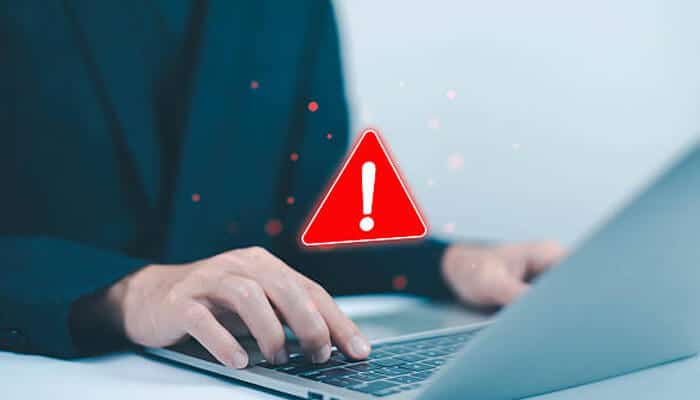Finding out that your company is insolvent can feel akin to an admission of defeat, a sign that you can’t run a business properly, or you’ve acted irresponsibly and neglected your duties as a director. Learn how insolvency can affect your company and discover effective ways to handle financial challenges. Find out how to protect your business from bankruptcy
This isn’t necessarily the case. Even if you’ve managed the company properly and fulfilled your directorial duties to the best of your ability, unforeseen financial challenges and economic circumstances can weaken your company’s finances, potentially leading to insolvency. Insolvency can affect your company regardless of your best efforts.
So, what does it mean if your company is insolvent, and how should you deal with it?
Understanding How Insolvency Can Affect Your Company?
As a director, you should always be aware of your company’s solvent position, and there are telltale signs that you should watch out for. Insolvency can affect your company by creating an inability to repay its debts as they fall due. The company may also have a balance sheet with more expenses than income, indicating financial distress.
The most telltale sign of insolvency is an inability to repay your company’s debts as and when they fall due. The company may also have a balance sheet with more expenses than money coming in to compensate that amount.
Insolvency can also sour relationships with creditors, possibly leading to legal action against your company as those creditors try to recover what you owe them, which we’ll cover more later.
In the longer term, insolvency could harm your company’s credit rating, threaten its future, and even leave you personally liable for the company’s debts if you’ve not fulfilled your directorial duties.
How Ignoring Insolvency Can Affect Your Company Future?
It can be tempting to ignore a state of insolvency and hope that the problems will rectify themselves. After all, running a business isn’t plain sailing from beginning to end. While resilience is an admirable quality, hoping the insolvency will sort itself out is the worst thing you can do.
Continuing to trade whilst the company is insolvent will worsen the situation for both your company and its creditors, and even leaves you open to personal liability for the company’s debts.
Your creditors can pursue the company for the money you owe them. This can start as reminders in the form of emails and phone calls, but if you continue to ignore these, creditors can escalate things. They may send Statutory Demands or County Court Judgments (CCJs). The lattercan damage your company’s credit rating if they’re not dealt with in the time specified in the judgment’s paperwork, making it harder for your company to obtain credit in the future.
On top of CCJs, creditors can utilize debt collectors, who will visit your company to collect repayment. They could also utilise bailiffs, who’ll visit your company and attempt to recover assets equal to the value of your company’s debts.
In the worst-case scenario, your creditors could even petition to force your company into compulsory liquidation. They can do this by filing a winding-up petition, which, if unchallenged, leads to your company’s bank account being frozen, making further trading impossible.
How Can You Deal With Your Company’s Insolvency?
Fortunately, while a period of insolvency can hinder your company’s prospects, it doesn’t have to mean the end of your company. As soon as you’re aware that your company can’t pay its liabilities as and when they fall due, you should speak to an insolvency practitioner. These licensed and regulated professionals are monitored by regulatory bodies, and are qualified to give advice on the best course of action for your company and carry out a range of insolvency solutions depending on the severity of your company’s debts.
1. Repay in affordable instalments
If your company has a profitable, proven business model but unmanageable, unsecured debts are hindering its operations, you may be able to repay a portion of that debt in affordable monthly installments. You can do so via a Company Voluntary Arrangement (CVA). Managed by a licensed and regulated insolvency practitioner, a CVA consolidates all of your company’s unsecured debts into one affordable payment, which is then distributed to creditors.
The process allows your company to continue trading throughout the process, which usually lasts around five years. Once the CVA concludes, any remaining unsecured debt is written off, and the company continues trading without the burden of those debts.
2. Restructure the company
If your company has more fundamental issues, but the business could survive with some changes, then it might benefit from administration. Administration sees a licensed insolvency practitioner, who acts as administrator, investigate the company’s structure and finances while exploring a way to return it to a profitable state. Your company is protected from creditor pressure for the administration’s duration, allowing the administrator time to work on a solution and figure out a suitable exit strategy.
3. Close the company voluntarily
In some cases, your best option would be to close your company, write off the unaffordable debts and allowing you to start afresh. If recovery is unfeasible, or you don’t want the business to continue after the period of insolvency, you can close your company through a Creditors Voluntary Liquidation (CVL). The process puts an end to your company, stopping all legal action from its creditors, and draws a line under the insolvent company and its unsecured debts, which die with it.
While closing your company may be a last resort, by entering liquidation, you’re demonstrating your commitment to fulfilling your directorial duties. If you’ve fulfilled these, you could start a new business once the old insolvent company is liquidated.
To Conclude
Your company is insolvent if it cannot pay its bills as and when they fall due. Insolvency can affect your company by posing significant risks, including legal action and potential closure. As a director, it is part of your duties to deal with it before it becomes a larger issue that threatens the company’s future. Speak to a licensed and regulated insolvency practitioner for advice on how best to deal with your company’s issues.
Depending on your company’s circumstances, this may involve repaying an affordable amount through a CVA or restructuring the company back to a profitable state through administration. If closure would be a better option, you can do so via a CVL, potentially allowing you to move on and start afresh, free from the liquidated company’s debts.
Source: Cosmo Politian











